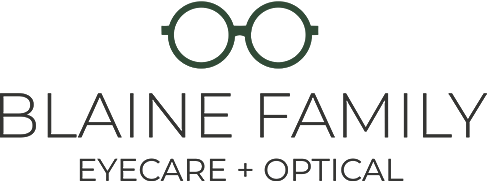
When it comes to protecting your vision and eye health, regular eye exams are essential. However, many patients are surprised to learn that there are different types of eye exams, each designed for specific needs. Understanding how these exams differ can help you make the best choices for your eyes and understand how your insurance covers your visit.
What is Routine Eye Exam?
A routine eye exam is primarily focused on evaluating how well you see and updating your glasses or contact lens prescription if needed. These exams are important for people who want to make sure they’re seeing clearly, or who need a prescription update to keep their daily life on track. During a routine exam, we also screen for common eye problems, but the main goal is vision correction.
A routine eye exam typically includes several important steps. First, your visual acuity is tested to assess how clearly you can see at different distances. The doctor will also perform a refraction, which determines your exact prescription for glasses or contact lenses. In addition to evaluating your vision, a basic eye health screening is performed to check for any early signs of common eye problems. Finally, your optometrist will review your vision needs and discuss your daily lifestyle to make sure your prescription and recommendations fit your routine.
Routine eye exams are usually billed to vision insurance plans such as VSP or EyeMed, if you have coverage. These plans typically pay for the exam itself and often help cover some of the costs for new glasses or contact lenses.
What is Medical Eye Exam?
A medical eye exam is designed to diagnose and manage eye health problems. If you come in with symptoms such as eye pain, redness, sudden changes in vision, flashes of light, or a history of certain medical conditions (like diabetes or high blood pressure), your exam is considered “medical.” Even if you come in for a routine visit but we discover a medical issue, your exam may need to be billed as medical.
A medical eye exam includes all the components of a routine eye exam, such as vision testing and a general eye health screening. In addition, it involves a more in-depth evaluation for eye diseases like glaucoma, cataracts, and macular degeneration. Your eye doctor may recommend specialized testing, such as OCT imaging, retinal photography, or visual field testing, to get a clearer picture of your eye health.
Medical eye exams also address the diagnosis and management of eye injuries or infections, as well as ongoing monitoring for chronic conditions like diabetic retinopathy. This type of exam is especially important for patients experiencing symptoms or managing existing eye health issues.
Unlike routine exams, medical eye exams are billed to your medical insurance plan, such as Blue Cross, HealthPartners, or Medicare. Co-pays, deductibles, and coverage details are determined by your medical policy, not your vision insurance.
Which Exam Do You Need?
You want to update your glasses or contact prescription: Routine exam
You have diabetes or another health condition that can affect the eyes: Medical exam
You’re experiencing symptoms like redness, pain, light sensitivity, or sudden vision changes: Medical exam
It’s your yearly eye check-up, and you have no symptoms or health concerns: Routine exam
You’re being monitored for glaucoma or macular degeneration: Medical exam
The Importance of Regular Eye Care
Both routine and medical eye exams play a crucial role in protecting your eyes. Even if you have perfect vision, regular routine exams can catch early signs of issues before you notice symptoms. And for those managing a medical eye condition, consistent medical eye care helps prevent vision loss and maintain quality of life.
Prioritize Your Vision and Eye Health at Blaine Family Eyecare
At Blaine Family Eyecare, our doctors take the time to understand your vision needs, medical history, and any symptoms you may be experiencing. We use advanced diagnostic technology to ensure every exam (whether routine or medical) is thorough and tailored to you.
Ready to take the next step in protecting your vision? Whether you need a routine exam or have concerns about your eye health, Blaine Family Eyecare is here to support you. Visit our office in Blaine, Minnesota, or call (763) 717-0072 to book an appointment today.







